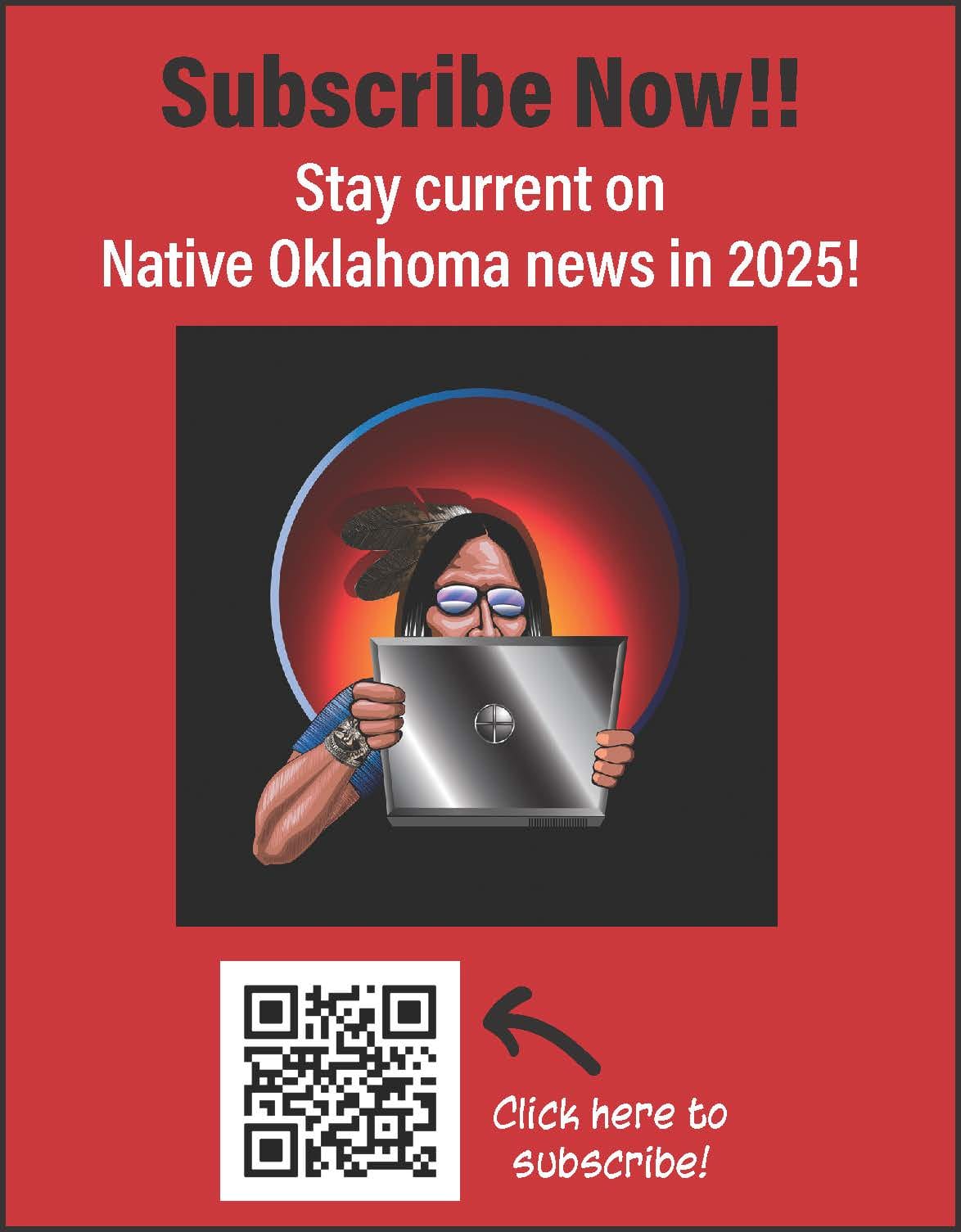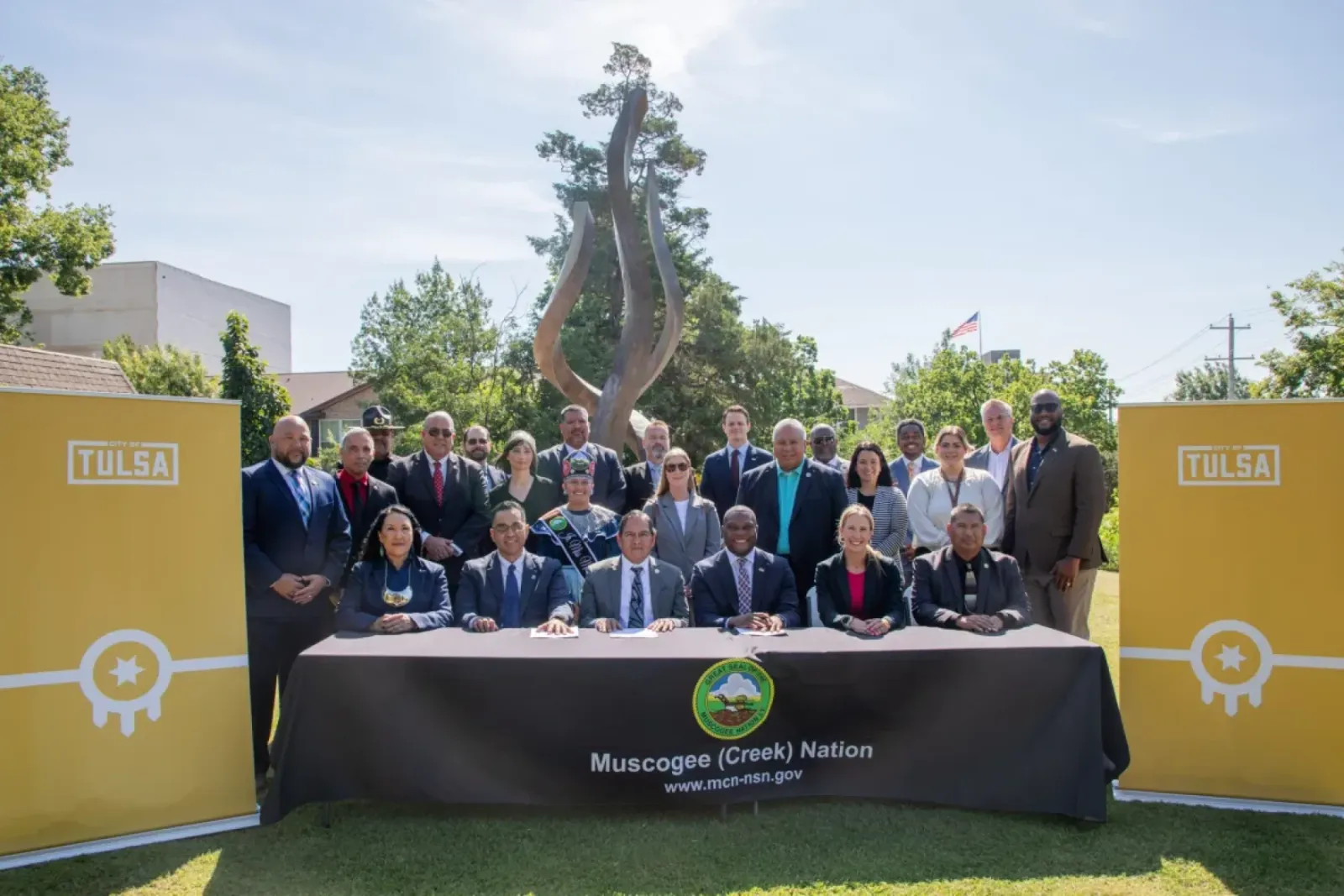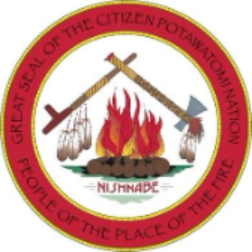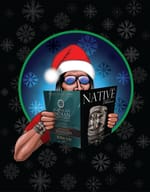

Despite tribal citizenship, traffic tickets for Freedmen descendants to remain in city court
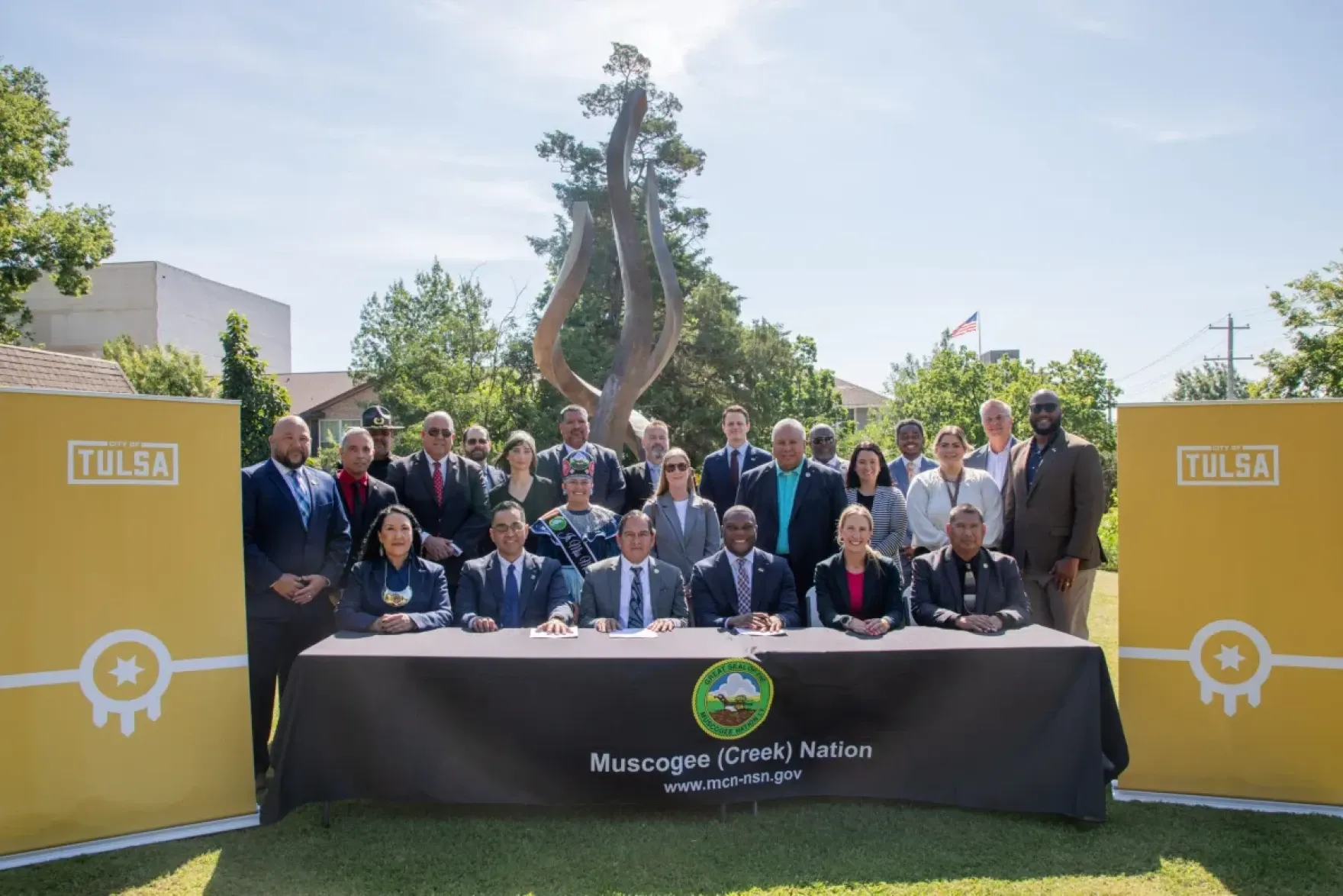
A deal for the City of Tulsa to send traffic and other municipal cases involving Muscogee Nation citizens to tribal court doesn’t cover the descendants of formerly enslaved people who are also tribal citizens.
By Clifton Adcock of The Frontier, Allison Herrera KOSU
Tulsa will still prosecute tribal citizens who can trace their lineage back to a Freedmen ancestor — people who were enslaved by the Five Tribes but freed and at one time granted citizenship within their respective tribal nations following the Civil War
A deal the Muscogee Nation and Tulsa reached in June covers all Native American citizens who commit crimes within the Muscogee Nation reservation. Under the terms of the deal, the city agreed to drop pending municipal charges against Native people and send their cases to tribal court. Moving forward, the city will send most cases involving most tribal citizens to the Muscogee Nation court system.
But the agreement includes a provision that, in addition to being a tribal citizen, people must have a certified degree of Indian blood for their cases to be sent to tribal court.
Michelle Brooks, a spokesperson for Tulsa Mayor Monroe Nichols said that the settlements “does not expressly include or exclude Freedmen” but follows a standard set by federal courts.
A 19th-century U.S. Supreme Court case, United States v. Rogers, set out the requirement of a blood quantum — a person’s documented degree of American Indian ancestry to be considered a tribal citizen in state and federal court.
Jason Salsman, a spokesperson for the Muscogee Nation, said that the new agreement with Tulsa doesn’t apply to Freedmen because the federal government “requires Indian blood to be considered an Indian.” Tribal citizenship cards issued to Cherokee Freedmen list a zero blood quantum; therefore, they are still under Oklahoma state jurisdiction.
The Five Tribes — the Cherokee, Chickasaw, Choctaw, Muscogee and Seminole nations — all sided with the Confederacy during the Civil War. After the Confederacy lost, these tribal nations signed treaties to re-establish their relationships with the United States government and end the practice of chattel slavery. In some cases, tribes agreed to grant citizenship to enslaved people. Then in 1887, the United States enacted the Dawes Act, which created citizenship rolls for tribal citizens who were citizens “by blood” and those who were not. The Dawes rolls for Freedmen had no blood quantum.
Marlon Drew, 31, a Cherokee citizen of Freedmen descent, cannot have his case transferred to tribal court because of his lack of degree of Indian blood. Drew was arrested by Tulsa police on misdemeanor complaints of trespassing, obstruction and resisting arrest in March 2024. His case was still pending in Tulsa municipal court as of Aug. 7.
Cherokee Freedmen had no blood quantum listed on the Dawes rolls but were finally granted tribal citizenship in 2017 after a hard-fought legal battle.
The lack of blood quantum still has legal consequences for descendants like Drew today.
Drew’s lawyer, Sabah Khalaf, said he intends to take the case to trial if the city doesn’t drop the charges, arguing that his client should be charged in tribal court.
Khalaf says it’s a “double whammy” of injustice for Drew.
He said he feels like his client is being given disparate treatment for being Black man in the criminal justice system and not being given the chance to have his case heard in the right court, all because of his lack of blood quantum.
“It is a moral thing,” Khalaf said. “I feel like he was treated inherently unfair.”
Khalaf worked in the Tulsa County District Attorney’s office as a prosecutor before he opened a private practice. He wants to help people who’ve made mistakes and need real help with addiction or other issues that landed them in the crosshairs of law enforcement.
When the U.S. Supreme Court ruled in the 2020 McGirt decision that much of Oklahoma was still Indian Country, he immediately applied to be admitted to practice law in Cherokee and Muscogee Nation courts, where he’s represented many clients.
The number of Freedmen caught in the same legal predicament as Drew is unknown. However, there may be more attention paid to the issue after the Muscogee Nation’s Supreme Court ruled earlier this year that Freedmen descendants are eligible for citizenship.
Last year, Cherokee Nation Principal Chief Chuck Hoskin Jr. called for an act of Congress to fix the law so Freedmen descendants can take advantage of the McGirt ruling and have their cases transferred to tribal court.
Khalaf said he doesn’t see Congress taking up that issue any time soon, which could leave his client and other Freedmen descendants facing charges in state court, rather than tribal court.
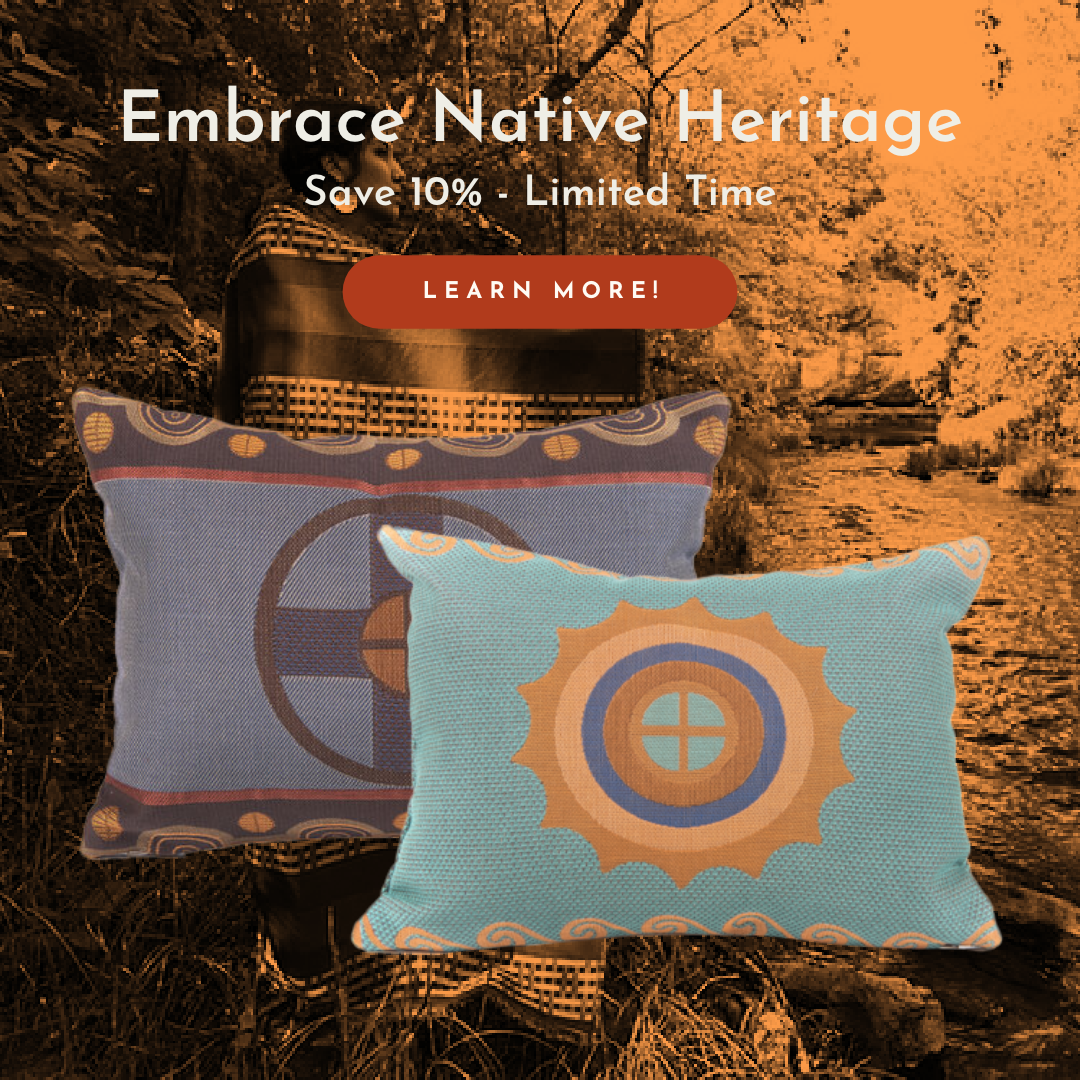
Citizen Potawatomi Nation’s Lease-to-Own Program Improves Family Trajectories
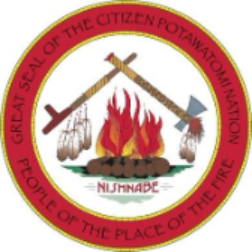
Tribal program overcomes common home ownership barriers
SHAWNEE, Okla. – The Citizen Potawatomi Nation (CPN) launched its lease-to-own program with a singular goal in mind: equip its members for home ownership.
“Home ownership is a crucial way families can build generational wealth,” said CPN Housing Department Director Scott George. “We recognized common barriers for our members to home ownership and launched a program in 2020 to help them overcome those obstacles."
George said the typical barriers to home ownership include access to a starter home, low credit and difficulty saving for a down payment.
To combat the starter home shortage, the Tribe constructed energy-efficient homes valued around $150,000-$160,000. Tribal members were invited to apply for the lease-to-own program, and if approved, moved into one of the homes with the understanding they could purchase the house in three years if they met certain requirements.
One such requirement was to repair low credit scores. Participants commit to reducing their debt and not incurring new debt during the program.
“Banks typically don’t approve a mortgage loan unless an applicant’s credit score is at least 625-645,” said George. “When people join our program, their credit scores average 400-500, and it takes roughly three years to repair their credit to the approved range. We require them to repair their credit so it’s easier for them to get a mortgage loan later.”
The final common barrier to home ownership is often saving for a down payment. The Tribe charges the program participants monthly rent, then applies the paid rent — dollar for dollar — to the appraised value of the home at the end of the three years, reducing the overall selling price of the home.
When program participants apply for a mortgage loan with Sovereign Bank, the largest Tribally owned bank in the nation and owned and operated by CPN, they have a reduced loan amount, repaired credit and years of positive rental history demonstrating ownership readiness.
“This approach sets up our people for success as homeowners,” said George. “Because we don’t heavily subsidize housing, they are prepared for the routine upkeep and maintenance of a home and can pay the taxes on the property while enjoying repaired credit.”
The Tribe also provides constant financial and homebuyer education, further preparing participants for the responsibility of home ownership.
To date, four out of five participants purchased their home at the end of the three years.
“Watching people get into their first home is rewarding,” said George, who has worked in the CPN Housing Department for 30 years. “All it takes is one person to change the trajectory of a family forever.”
George added that because participants can see literally see the investment in their future and the reward, they are more motivated to care for the property as a renter and meet the program requirements.
While no homes are currently available for the lease-to-own program, the Tribe is actively looking to purchase homes and build its applicant pool. To learn more, visit potawatomi.org/housing.
ROOTED IN HERITAGE: THUNDER’S NEW CITY EDITION UNIFORM HIGHLIGHTS NATIVE AMERICAN CULTURE AND COMMUNITY PRIDE
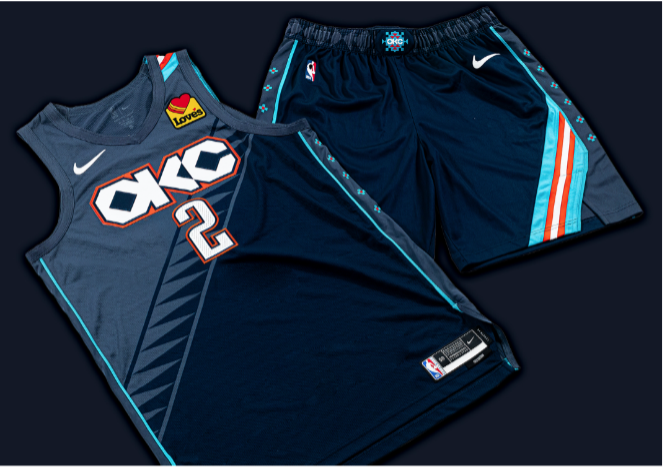
Uniform exhibit opens at First Americans Museum Aug 21; Team will debut during Nov. 19 game
OKLAHOMA CITY, OK – Today, the Oklahoma City Thunder unveiled its 2025-26 Nike NBA City Edition Uniform, a tribute to the Native and Indigenous cultures that shape Oklahoma’s identity and community spirit. The team will debut the uniform and an alternate, similarly designed City Edition court at Paycom Center during its annual Native American Heritage Night game Wednesday, Nov. 19 against the Sacramento Kings.
Design Elements
Fans may recognize elements of the new uniform, which draws inspiration from the Thunder’s 2018-19 City Edition design. This season’s version deepens the connection to Oklahoma’s rich Native heritage, weaving together historical influences with modern-day pride—reflecting Oklahoma City as a city that’s on the move, united by culture, and energized by the growing legacy of Thunder Basketball.
At the center of the jersey, interlocking geometric shapes form “OKC,” symbolizing unity and strength. Inspired by the Oklahoma River that binds the north and south sides of our city, the jersey also features water-like teeth uniting the jersey’s duotone halves.
On the waistband is a pattern of expanding squares representing growing communities, inspired by ceremonial regalia. Hidden in the right side-leg of the shorts is a turtle emblem, representing endurance and unity, featuring a circular shell with lines echoing community connection and the medicine wheel. The turtle’s squares and arrows point toward OKC, reflecting the four sacred directions.
Sunset-toned sashes wrap the shoulder and shorts leg, honoring tribal resilience and shared identity. The 11 geometric stars on the sides of the jersey and shorts carry forward stories passed through generations.
City Edition Uniform exhibit at First Americans Museum
Fans can get an up close and personal look at the uniform and enter to win City Edition gear during a limited exhibit at the First Americans Museum. The exhibit of the full uniform and the enter to win contest runs Aug. 21 through Sept. 5. Beginning Sept. 6, the uniform will be digitally exhibited at the museum through November’s Native American Heritage Month.
City Edition Alternate Court and City Nights
In addition to the uniform, the Thunder’s City Edition platform includes City Nights theme games and an alternate court with a City Edition design. Each Friday home game, beginning Dec. 5, is designated as a City Nights game, during which the team will wear the uniform and play on the City Edition court.
The City Edition collection goes on sale Nov. 11 and fans can sign up for merchandise text or email notifications at www.okcthunder.com/city.
Native ChocTalk Podcast: The Bow, The Deer & The Ancient Choctaw Hunt: Amy & Ian Thompson & Mike Smith (Choctaw)
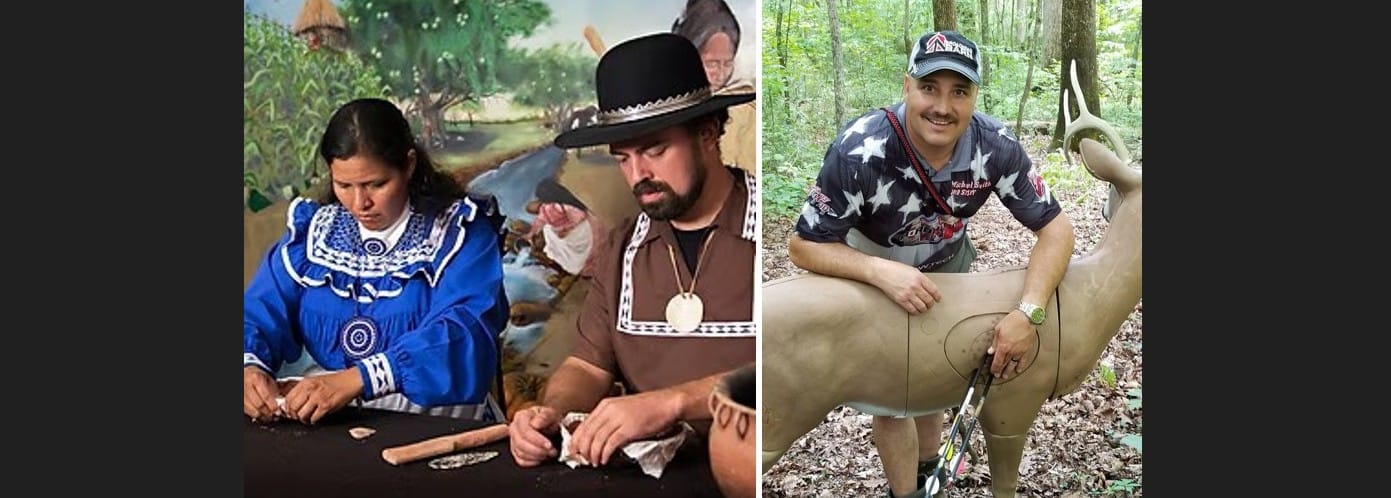
PART 1
In this episode, my guests, Amy, Ian and Mike take you deep into the heart of Choctaw tradition, food, and the sacred relationship with the hunt.
You’ll learn about:
- Life at Nan Awaya Farm (where yvnvsh (buffalo) and food are grown the Choctaw way- Ancient Choctaw hunting - the reverence for animals & wisdom from elders- Do buffalo will actually charge through 10k volts of electric fence?- What it’s really like to care for buffalo every day- The surprising stealth (and jumping skills!) of buffalo- The second edition of Ian Thompson’s Choctaw Food book (launching soon!)- Crafting traditional bows, arrows, and quivers- Stories from the hunt - how our ancestors approached deer with such skill and respect
This episode is full of stories, surprises, and teachings that connect past and present. Don’t miss it!
